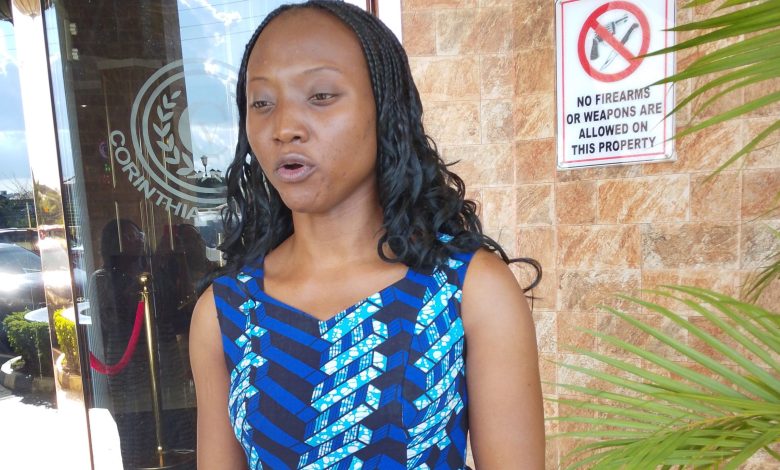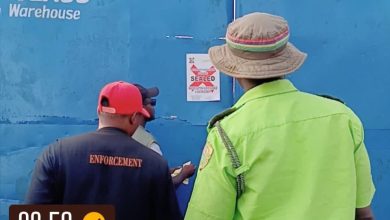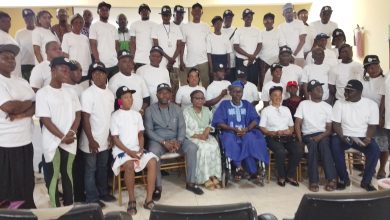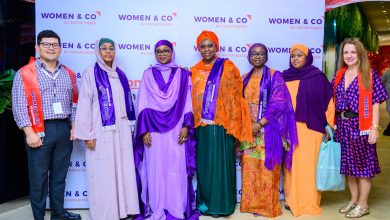Raising $1billion For FP2030 Made Possible By Family Planning Is Realizable – Bolaji

Margret Bolaji is the Youth Partnership Manager at FP2030 Made Possible by family planning. In this interview with Ifeanyi Eduzor, she opens up on the activities of her organisation and plans to raise $1billion for family planning around the globe and many more. Excerpts.
Can you introduce yourself to our readers.
My name is Margret Bolaji. I’m the Youth Partnership Manager at FP2030, Northwestern Central Africa, based in Abuja, Nigeria.
Give us an overview of what FP2030 Made Possible is all about
Thank you so much for that question. At FP2030, we are a partnership that is solely focused on family planning. However, we put family planning at a point where we can also talk about other issues.
You’re aware that oftentimes, when people talk about family planning, they reduce it to only commodities. Yes it’s about commodities but we Know that family planning has made a lot of things possible for people.
It has made girls and even women to go back to school. It has also helped parents including fathers and mothers to raise healthy children as well as helped women to stay healthy ; go back into their career and several others.
So, with this campaign which is a global but community-led campaign by FP2030, supported by the Gates Foundation, we are raising voices; new voices, from fashion, media, arts and from different spheres of life, beyond the health ones that we already know, so that women can begin to come out
With the campaign, countries can see what family planning has made possible for them . So we’ re calling on everybody to share their stories. To tell the world what family planning has done for them.
As for the youths, what is the benefit of this campaign? What role should they be playing and the expectations from them
We know very well, especially in our country, Nigeria, that young people make up the bulk of the population. Over 60% of persons in this country are between the ages of 10 to 24. With that, it means that if we do not educate this population, knowing fully well that they’re the next set of people who would populate the entire world, then we’ re making a mistake.
Having said this, it is important for young people to have adequate and accurate information, so that they can make informed choices. And like we always say, when you are able to invest in the health sector, particularly family planning of young people, there are three dividends. One is the adolescent that they are today, the adults they will become, and even the next generation they may want to raise.
That way, it means that Nigeria as a country can tap into the innovation, the strengths, and even all of the innovations that young people bring.
But this cannot be done if they don’t stay healthy. If they are not able to make decisions for themselves, by themselves, whether when, and how many children they want to have, then it becomes a wasted generation.
What is your message to the youth on how the ‘made possible by family planning’ affects them?
For me, I would say to fellow young people that they should get the right information, make informed choices.
They should share their stories and let people know whether family planning has made something possible for them.
Remember, family planning is not just about products. It’s about what it has been able to help you achieve, help you get back to school, help you raise a healthy family, help you to achieve your full potential and many more.
So as young people, raise your voices, get adequate information, get accurate information, and also be sure to make informed choices about your health.
The ‘made possible by family planning’ also has a target of raising funds, can you tell us more about that.
You’re absolutely correct. We are aiming to raise One billion USD.
How possible would that be and what are the expectations from Nigeria to contribute to this particular fund.
So just like you rightly mentioned, we have three goals, and one of the goals, which is the number one, is to raise one billion USD. We are also counting on other countries to make this achievable.
Again, we know that right now, the funding landscape is really going down with funding cuts here and there by donors. And this is a big call on the Nigerian government to ensure that at least 1% of our health budget should be dedicated to family planning both at the national and the state level.
This is the time to make this commitment happen, to make sure that we’re releasing the funding, we’re appropriating them when necessary.
We are also calling on philanthropies and the private sector because the government alone cannot do it, but they have to also show us the way.
We know what works when it comes to family planning, and we know that it’s a very great investment. So this is the time to put our money where our mouth is.
So what we’ re saying is that the Nigerian government must wake up to their responsibility of making sure that their commitment of 1% of total budget on health is actually fulfilled.
You know that when it comes to government funding, the funding is always lean and even when they have it budgeted, we discover that they are not released, despite that it is inadequate. So what are your recommendations in order to achieve the ‘made possible by family planning’ and also for the government to be part of this campaign?
I believe that the government has a role in the ‘made possible by family planning’ campaign but we must emphasize on public – private partnership.
So, the government must be willing, like I said, for whatever fund they are committing, and even go beyond what they’ve committed, to ensure release of this fund.
They also need to bring on board the private sector and philanthropies to commit to it.
And once the government is able to set the enabling environment, then it’s easier for counterpart funding, even donors that are coming in.
Civil society organisations also need to continually hold them accountable. We need to hold our government and our leaders at all levels accountable to make sure that they are providing these funds.
But ultimately, it’s also to look inward. Like I mentioned, family planning is a multi-sectoral thing. So within the Ministry of Education, within the Ministry of Health, Youth and Sport, Budget and Economic planning, their fundings lies there.
Now we can all come together, and rather than duplicate efforts, look out for it and make sure it’s being released appropriately. And with that, we would be closer to achieving our FP2013 goal of 27% contraceptive prevalence rates in Nigeria, and of course the goals of the campaign.
Can you tell us again the three goals of this campaign
Absolutely. The first goal speaks about raising new money. So the new money is the $1 billion USD that we’re looking forward to raising to support family planning across the globe.
The second one is raising new voices, making sure that beyond health; we have a lot champions in health, we want to go into fashion, banking and finance, into Engineering, because all of these people, FP, have made something possible for them.
Let’s bring them on board and make sure they align with our vision, and the last one is to also look out for influencers, the media, so that they can also add their voices.
And at the end of the day, we want new momentum where family planning is no longer regarded as a health issue, as a woman issue, but everybody’s issue. And as a country, we know that we can’t do so much or move forward without family planning.
What is your target for this year for ‘The Made Possible Family Planning Campaign’
Like I mentioned, once we get closer to reaching that $1 billion target , it helps us know that we’re closer to our goal. Also, we are encouraging different stakeholders to make a commitment. So before now, with FP 2020, we just used to have governments alone make commitments.
But right now, we have a civil society organisation, private sector. So the number of non-government actors’ commitments that we’re able to raise contributes to this set of goals. Also, having voices, new voices.
So today, if we just walk into a gathering that is solely fashion, and they’re speaking about family planning, that sums up for it. If we walk into a gathering spot, and then they’re discussing family planning, that’s also a success story.
So, all of these are key indicators that help us know that we’re walking towards it.
But ultimately, our target is to really reduce the unmet need for family planning, so that every woman who walks to the health facility is able to access family planning services.
The targets to reach these three goals by 2030 are in phases. The first set of this campaign is going to be highlighted at the International Conference on Family Planning, which will be held in Bogota, Colombia this November.
At that conference, all stakeholders will come together and say, what are the next steps? Because ultimately, until the world ends, family planning issues will continue.
But right now, the road map that we have is what takes us, like we said, the road to Bogota, Colombia. That is where the International Conference on Family Planning is. So from that place, we then set a new set of goals to be able to achieve even more.
But ultimately, like you know, from the name FP2030, we’re here working also as we ensure to fulfil the SDG goals of 2030. So we’re here till 2030. From there, we see where we go.
We’re also relying on the media to help us to continue to spread this message, amplify the voices. And I mean, we can really make sure that family planning becomes a social norm.
Everyone embraces it because really, it helps to save lives, it helps to save the nation, and it helps to also improve the economy.
By having different partners whether it’s budget tracking, it’s FP2030 commitment and several other things, it means that we are now being armed with the right information to hold government accountable but to first of all inform the general public of what they need to know because I mean we’re going to be holding people accountable.
We need to be transparent, so now we have the facts, we have the figures, we have the evidence, it’s now time to make sure the society, the community know about it so they can hold the government and even themselves accountable to fulfilling the FP2030 goal.





